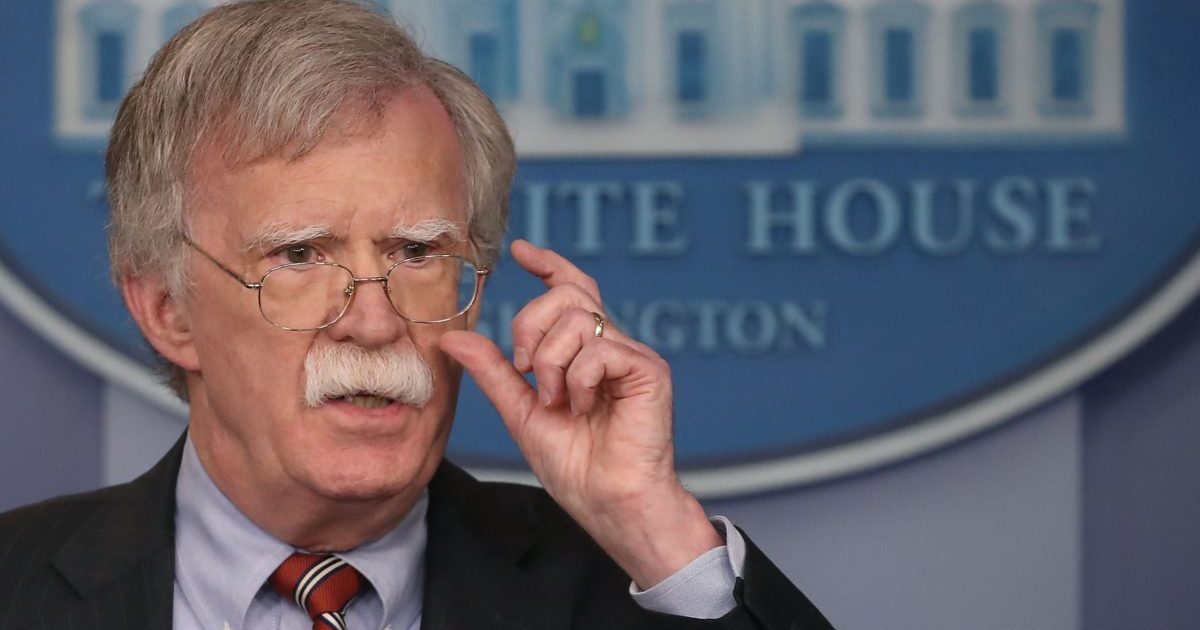
An attorney for former Trump national security adviser John Bolton and Bolton deputy Charles Kupperman has released on a statement in response to a federal judge’s Monday ruling that former White House counsel Don McGahn must testify in the impeachment inquiry.
Charles J. Cooper’s statement was an apparent attempt to draw a distinction between the McGahn case and the Kupperman case. It also functions as an argument that the McGahn decision wouldn’t apply to Bolton either.
“We have now studied the district court’s ruling in the McGahn case, the pendency of which we were of course aware before we filed an action on behalf of Dr. Kupperman. In McGahn, the House Judiciary Committee emphasized to the district court that the information it sought from Mr. McGahn ‘did not involve the sensitive topics of national security or foreign affairs,'” Cooper said. “Therefore, any passing references in the McGahn decision to the Presidential communications concerning national security matters are not authoritative on the validity of testimonial immunity for close White House advisors, like Dr. Kupperman, whose responsibilities are focused exclusively on providing information and advice to the President on national security.”
“Accordingly, Dr. Kupperman will continue to pursue his lawsuit seeking an authoritative and binding judicial ruling resolving the question whether he is constitutionally obliged to obey the House’s demand that he testify or the President’s conflicting demand that he decline to do so,” he added.
The argument, in other words: information sought from McGahn doesn’t involve national security matters, but that wouldn’t be the case with Cooper’s clients; we’re talking about apples and oranges, so a judge needs to rule separately on Kupperman’s case and Bolton’s would-be case on whether they must testify.
House Democrats have not subpoenaed Bolton. They did subpoena Kupperman, but Kupperman responded by filing a lawsuit asking a judge to decide if he must follow President Donald Trump’s directive or follow the House directive to testify. House Democrats eventually withdrew the Kupperman subpoena and asked the judge to dismiss the case. They opted instead to “look for guidance in the outcome of similar litigation involving a subpoena to former White House counsel Donald McGahn.”
In a bizarre twist, acting White House chief of staff Mick Mulvaney tried to get involved and then backed off.
Cooper said that he and his clients were “dismayed” by the House’s decision to withdraw the subpoena and seek dismissal.
“We are dismayed that the Committees have chosen not to join us in seeking resolution from the Judicial Branch of this momentous Constitutional question as expeditiously as possible,” he said. “It is important both to Dr. Kupperman and to Ambassador Bolton to get a definitive judgment from the Judicial Branch determining their Constitutional duty in the face of conflicting demands of the Legislative and Executive Branches.”
House Democrats answered that “given the schedule of our impeachment hearings, a court process that leads to the dismissal of Dr. Kupperman’s flawed lawsuit would only result in delay, so we have withdrawn his subpoena.” They also expressed concern that a subpoena to Bolton would lead to similar results. Cooper claimed that the Kupperman lawsuit was not an attempt to “delay or otherwise obstruct the Committees’ vital investigatory work.”
The Department of Justice has already filed a notice of appeal in the McGahn case. The Supreme Court will likely have to resolve the matter.
[Image via Mark Wilson/Getty Images]